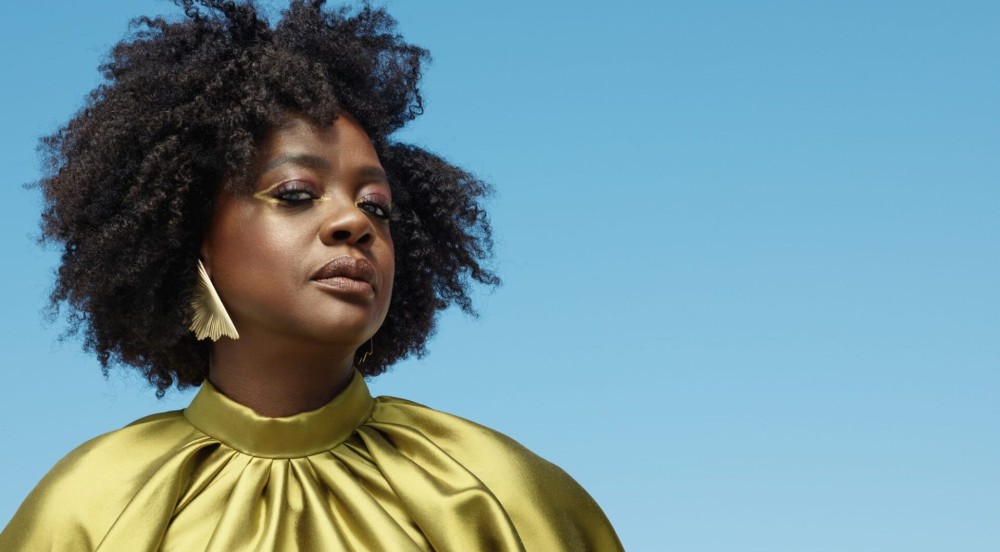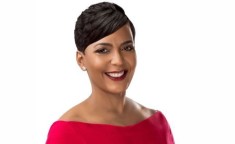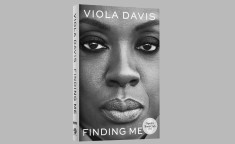In This Issue
Viola Davis recalls the exact moment she knew she would become an actress. The Emmy and Oscar-winning star was watching a barely-working TV when the legendary Cicely Tyson came on screen in The Autobiography of Miss Jane Pittman. “She had a long neck and was beautiful, dark-skinned, glistening with sweat, high cheekbones, thick, full lips, and a clean, short Afro,” Davis writes in her new memoir Finding Me. At that moment, Davis found her calling—and her exit.
One of the most prolific actors of our time, Davis, EBONY's May digital cover star, has given us snippets about the dire circumstances in which she was raised. But in her new autobiography her childhood experience spills out on the page in vivid raw detail, and there is no holding back.
Coming of age in the 1970s, Davis lived in a dilapidated building on Washington St., the "128" as she and her sisters ominously called it. Her childhood was overrun with poverty, abuse, and the deafening shame she felt growing up as a poor black girl in Cental Falls, R.I. Davis sustained periods of life with no heat or hot water, along with a bed-wetting issue. Her situation made it impossible to maintain daily hygiene, and she was admonished by teachers for her uncleanliness. She shares the history of her parents, revealing her father's abuse and infidelity. She recalls being called ugly and taunted with racial epithets and bricks. She also relives bouts of sexual abuse.
Davis doesn’t let you shy away from her brutal childhood. Just as she leaves it all on the stage and screen in her award-winning performances, she draws out every harrowing nuance of her youth: the hurt, the shame, the racism, to the point where you may need to take a break from reading.
But Davis also makes it clear that she had her sisterhood, her real-life siblings: Dianne, Deloris, Anita and Danielle. They encouraged her to seek a life beyond their squalor, performed with her in her first winning show, and taught her the importance of loving and protecting another human being.
One program that changed Davis' life significantly is being a part of Upward Bound. The non-profit organization aids low-income students with pre-college preparation. She gives accolades to the many teachers there who saw past her poverty and Blackness to nurture her talent as an artist and achiever.
The latter half of the book is devoted to Davis' journey as a working actor. She applied and was fast-tracked to Julliard, the beginning of her professional odyssey. At the famed artistic institution, Davis honed her craft, but it was a trip to Africa with iconic choreographer, the late Chuck Davis, that allowed her to unleash her true talents. There she learned to appreciate her heritage through food, dance and camaraderie.

Davis maps out the perils of being a working actor for those interested in following in her footsteps. Even armed with an agent, the beginning of her career was filled with rejection based on her looks and the color of her skin. But a starring role on Broadway led to TV and movie roles, and finally, her work in the film Doubt in 2009, which earned Davis her first Oscar nomination.
Davis unveils more of her life’s most compelling moments: meeting the love of her life, Julius, who she married in 2003. Then there was the death of her father, who had transformed himself from an abusive man to the bedrock of the family. Adopting her daughter Genesis brings Davis unparalleled joy.
After two Oscar nominations, and still not seeing hearty roles for women of color, Davis and her husband established JuVee Productions in 2014. The production company develops film, television and digital media projects that speak to people of color.
Davis reveals that she shares a second sisterhood with her female castmates in The Help, where she performed her second Oscar-nominated role. She discusses how playing her Emmy-winning character Annalise Keating in How To Get Away With Murder allowed her to claim her worth and power as a desirable woman. This release led to Davis’ mesmerizing portrayal of Rose Maxson in the movie Fences, a performance that earned her the Best Supporting Actress Oscar in 2017. Fun and enlightening interactions with fellow celebrity colleagues and icons are sprinkled throughout the book, giving it some lightness.
The award-winning actress opens her memoir with a story of her running from boys who used to chase her with bricks when she was just eight years old. Throughout her life journey, she has dealt with this inner child whose pain and torment shaped her, but also which aided her to stay steeped in strength. This allowed her to emerge as the accomplished, polished, poised and stunningly beautiful actress she has become. Finding Me is Davis’ catharsis, her time to stand up, no longer in shame. With these words, she is finally able to give that little girl the hug she truly deserves.


















